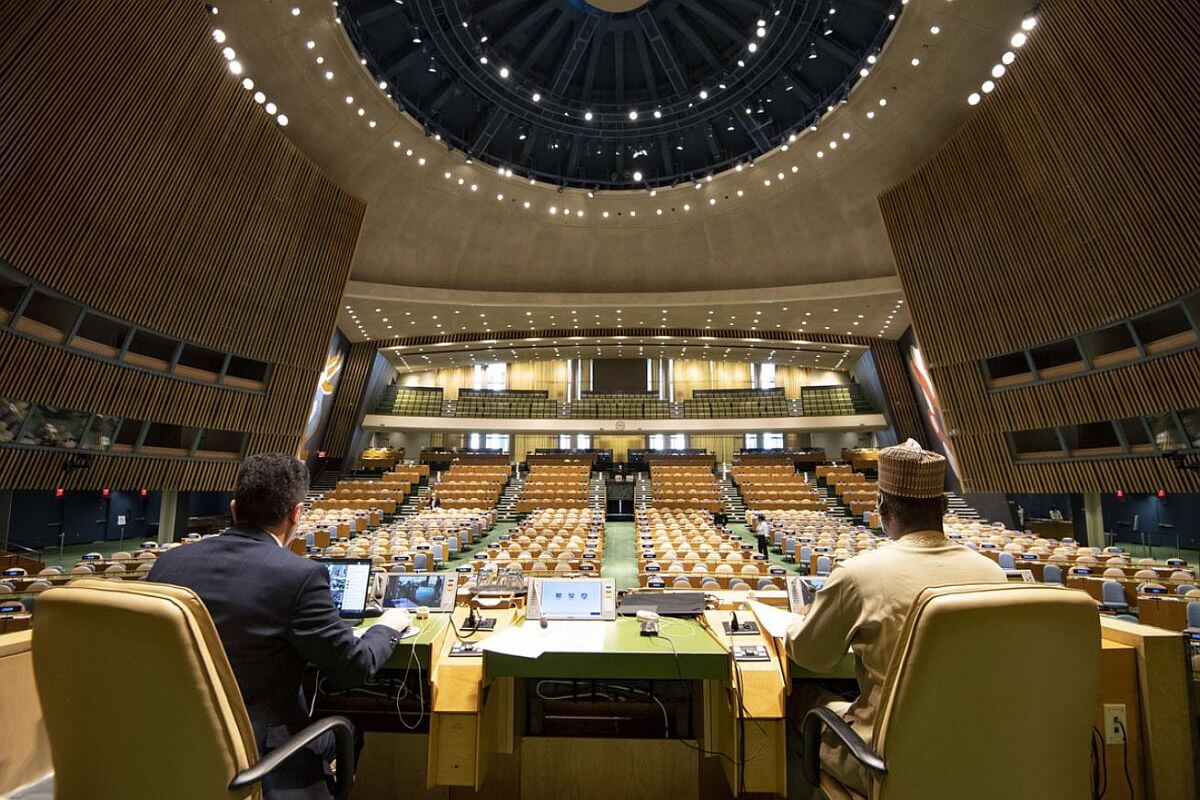On Wednesday, India was elected as one of the ten non-permanent members of the United Nations Security Council (UNSC). Its term is scheduled to begin from January 2021. India was the endorsed candidate for the Asia-Pacific region and stood unopposed. It replaced Indonesia as the representative of the area. Prime Minister Narendra Modi expressed his gratitude toward the international community for accepting and supporting India’s membership in the Council.
Also Read: Can India Successfully Push for Institutional Reform During Its Upcoming Term at the UNSC?
India has already laid down several issues that it intends to priorities in its two-year term as a non-permanent member of the UNSC. To begin with, India has emphasized on its aim to achieve the “5 S’s”, which stands for samman (respect), samvad (dialogue), sahyog (cooperation), shanti (peace), and samriddhi (prosperity).
Additionally, India also previously highlighted its aim to achieve “NORMS”, which is A New Orientation for a Reformed Multilateral System. Through this, India will seek to stimulate reforms in the Security Council to achieve its long-lasting goal of securing a position as a permanent member of the Security Council. Over the years, several countries have supported this call as the current composition of the Security Council does not reflect the dynamics of the international community and the “geopolitical realities of the 21st century”.
In fact, this disparity between the realities of the 21st century and intergovernmental organizations and groups is not limited to the UNSC. Earlier this month, US President Donald Trump lamented that the G-7 did not truly represent “what’s going on in the world”, describing it as a “very outdated group of countries”. Thus, he proposed adding India, Australia, Russia, and South Korea to the list of invitees for the next G-7 summit.
Alongside its position in the UNSC, India’s Union Health Minister, Doctor Harsh Vardhan, was appointed as the chairman of the 34-member World Health Organization (WHO) Executive Board on May 22. Consequently, India will be elected as a member state of the executive board for a three-year term, wherein Vardhan will serve as the chairman for the first year.
Wednesday’s election was conducted to decide on five out of ten seats. Currently, to ensure proportional geopolitical representation in the Security Council, the ten positions are divided as follows: one for Eastern European countries, two for Latin American and Caribbean countries, five seats for Asia and African countries and two for Western European and others. Every year, 192 members of the General Assembly vote for five out of ten members for their term as non-permanent members of the Security Council, which lasts for two years.
Yesterday’s election was conducted to elect one member from the African countries, one from the Asia-Pacific region, one from Latin America and Caribbean countries and two from Western Europe and Others Group (WEOG). Seven countries – namely, India, Mexico, Norway, Ireland, Canada, Kenya and Djibouti – contested for the five seats. Mexico, like India, stood unopposed for its position as the representative of its region. In a major setback to Canadian Prime Minister Justin Trudeau’s ambition to increase Canada’s influence on the international front, Norway and Ireland won the seats for the WEOG region by securing 130 and 128 votes respectively.
The seat for African countries continues to remain unfilled as Kenya and Djibouti failed to secure a 2/3rd majority. The two countries are scheduled to contest for the position one against in a second round of voting scheduled for Thursday. The African bloc has stepped away from tradition and failed to decide a candidate amongst member states. While Kenya holds the support of the African Union (AU), a continental intergovernmental organization comprised of 55 African states, Djibouti has sought to go it alone, arguing that Kenya’s application should be void based on the rotation principle, as it has already held a seat on the UNSC in the past in 1977-1978 and 1997-1998. Although Djibouti did hold a seat from 1993-1994, its candidature is technically more legitimate, based on AU principles, given that Kenya held the seat more recently.
Also Read: Kenya and Djibouti Tussle for African Bloc’s Seat at the UNSC
However, it is clear that this principle is not followed, as South Africa has held the UNSC seat three times in the past twelve years, while Nigeria won its bid in 2012 and 2014 as well. Thus, both countries are seeking to replace South Africa for the region’s one remaining seat at the Council. Niger and Tunisia were already seated as non-permanent members of the UNSC in January.
Both Kenya and Djibouti have sought to emphasize upon their message of peace in the Horn of Africa, highlighting their contributions to UN peacekeeping operations. Kenya has stressed upon the fact that it has welcomed refugees from Somalia and South Sudan and offered assistance to the two countries in strengthening their governance. On the other hand, Djibouti has underlined its strategic importance, seeing as it is a defence base for France, Italy, the United States (US), China, and Japan. In fact, Pentagon’s 2019 Indo-Pacific Strategy referred to Djibouti as the “single most consequential region for America’s future”.
Image Source: The Statesman

